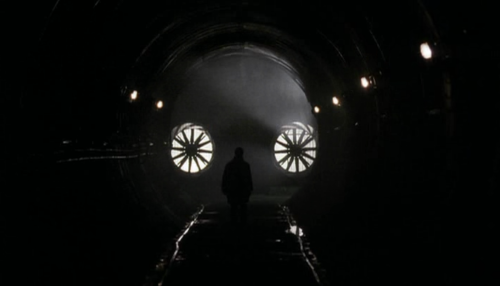Saw this in the Cinemobile earlier this week as part of the Subtitle Film Festival. Grimly impressive Second World War parable set in German-occupied Belarus and adapted from a short story by that country's greatest writer Vasil’ Bykaw. A film about how unstable our identity is, how it can change, especially in times of war, and also how the perception of others can rob us of who we think we are. It's 1942 and two Partisans, Burov and Voitik, arrive at the house of Sushenya to kill him for being a traitor. They believe he sold out three of his fellow workers to the Nazis in exchange for his freedom. They take him out into the woods to execute him but the group are ambushed by a German patrol and one of the partisans is wounded. Sushenya carries him on his back through the woods as they try to reach safety. With the use of flashbacks we learn how these three men have ended up here. We learn that Sushenya is innocent, that offered the chance to be an informer he refused. The German commander's response is to let him go. It's a brilliant piece of cruel thinking. He knows Sushenya would prefer a martyr's death to the shame of betrayal, so he turns this honourable man's refusal against him. With his companions hanged, Sushenya's release can only mean one thing. Even his wife doubts him. This is the crux of the story. When you take away someone's reputation, their good name, what do you leave them with? How much of who we think we are is bound up in how we're thought of by family and neighbours? Innocence isn't enough. It's meaningless if no-one believes you. We're in a moral fog here. A man feels he must atone for something he didn't do. Guilt envelops him. For the two Partisans, their stories are clouded in dumb defiance and self-preservation. History would see them as heroes for fighting the invaders, but their actions get innocent people killed. The tone is fatalistic, the acting powerful, the direction strong. There's nothing flashy here, just a steady clarity, a Christ story where an innocent man must die for the sins of others. But there's no salvation. Just fog.
Thursday, December 5, 2013
Kontroll (2003)
Labels:
Films Watched 2013,
Kontroll,
Subtitle Film Festival,
subway
Subscribe to:
Posts (Atom)

